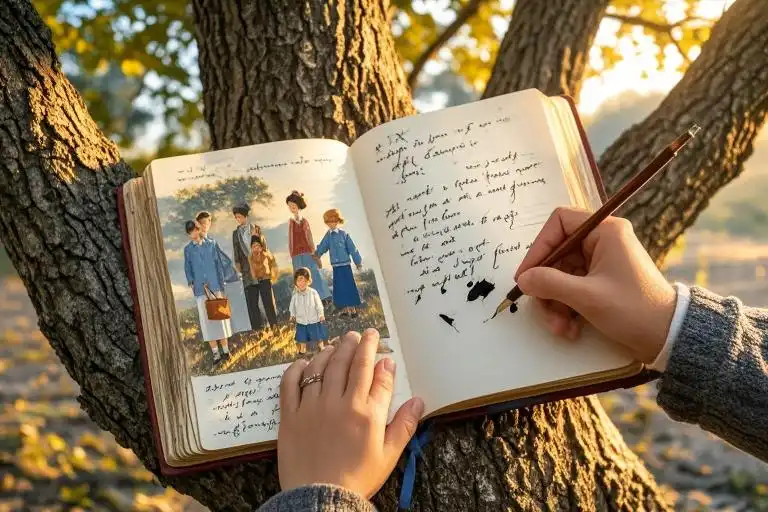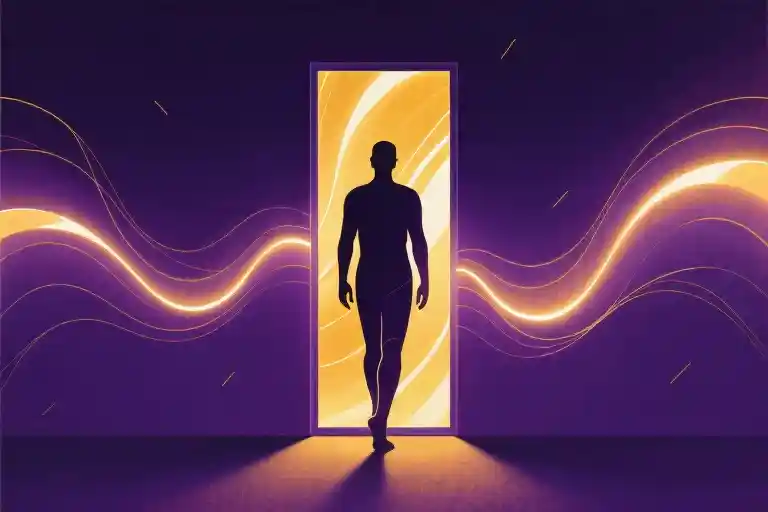You know that moment when your pen hovers over a blank page, and the grocery lists and unmade dentist appointments suddenly feel heavier than the universe? I’ve lost count of how many times I’ve stared at my notebook thinking: “Does this even matter?”
Turns out, you’re not alone in this dance with doubt.
The Messy Truth About Writing
Let’s get real—writing often feels like shouting into a void while wearing socks on a hardwood floor. You shuffle awkwardly, unsure if anyone’s listening. Bills pile up. Laundry breeds in dark corners. Adulting never stops its chaotic tap dance.
Yet here we are, stealing moments to scribble grocery receipts into poetry or text ourselves midnight story ideas. Why?
Because buried beneath our to-do lists flickers something wild and stubborn—a matchstick flame we’re terrified to name.
When My Father Taught Me to Speak Fire
I learned young how words could defy gravity.
At twelve, I’d sit cross-legged under our neighborhood oak tree, notebook balanced on grass-stained knees. My father—a mechanic who quoted Shakespeare between oil changes—would toss me prompts like spare change.
“Describe the wind’s secret name,” he’d say, wiping grease from his hands.
My early attempts were laughable. A poem about clouds once rhymed “fluffy” with “stuff-y.” But Dad’s eyes would crinkle as he nodded: “Keep going, kid. The magic’s in the trying.”
That battered notebook became my first bridge between worlds—between his calloused palms and my ink-smudged fingers, between the ordinary and the extraordinary.
Why Your Words Matter More Than Algorithms
We’re wired for connection. Neuroscientists confirm what storytellers always knew: sharing experiences lights up the same brain regions in both speaker and listener. Your description of morning coffee rituals? That’s not just caffeine talk—it’s neural hand-holding.
Three Unsexy Truths About Writing:
- Most first drafts suck (mine still do)
- Validation arrives late (if ever)
- The real reward lives in the cracks—the gasp when someone whispers “You too?”
That grocery receipt poem? It became a lifeline for a nurse working night shifts. The cloud rhyme? Made a widower remember his wife’s terrible singing. You never know which phrase becomes someone’s oxygen mask.
Building Cathedrals With Crumbs
J.K. Rowling drafted Harry Potter on napkins. Maya Angelou rented a sparse hotel room to write, armed with a Bible and a deck of cards. We all start small.
Try This Today:
- Text yourself one raw sentence about:
- The smell of your childhood kitchen
- What silence sounds like in your bones
- The color of loneliness
Don’t edit. Don’t judge. Just capture the flicker.
Your Legacy Isn’t a Monument—It’s a Ripple
The stories we craft today become tomorrow’s connective tissue. My father’s gone now, but when I write, I still smell motor oil and Shakespeare. That’s immortality—not in marble, but in shared breath.
So next time doubt hisses “Who cares?”, answer:
“I do. Someone might. Let’s find out.”
Keep the flame alive, friend. The world needs your particular shade of light.





